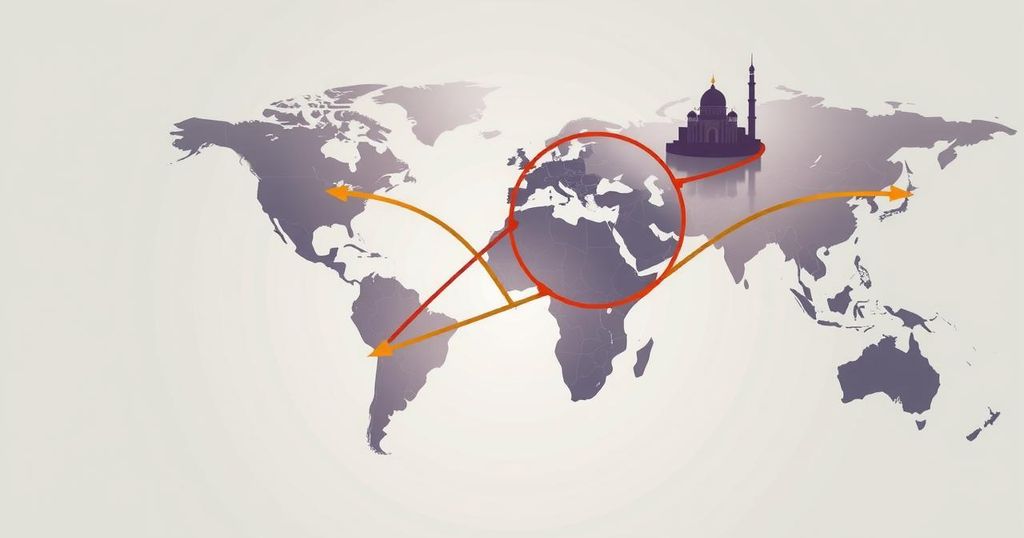China closely monitors U.S. President Trump’s strategy regarding Ukraine while reinforcing its partnership with Russia. As diplomatic engagements among Western leaders unfold, China reaffirms its role in pursuing peace. Analysts express concerns over the implications of U.S.-Russia discussions on China’s global positioning and reflect skepticism about Beijing’s genuine commitment to resolving the conflict.
China is closely scrutinizing the strategic approach of U.S. President Donald Trump regarding the ongoing conflict in Ukraine while simultaneously strengthening its partnership with Russia. As Beijing aims to emerge as a key strategic partner for Ukraine, it is keen on maintaining a robust relationship with Moscow, particularly against the backdrop of diplomatic activities involving Western leaders. British Prime Minister Keir Starmer and French President Emmanuel Macron are scheduled to convene with U.S. officials to discuss Ukraine, following significant talks between U.S. and Russian representatives in Riyadh.
Chinese President Xi Jinping recently coordinated with Russian President Vladimir Putin, who informed Xi about the Riyadh discussions, reaffirming the strong strategic alignment between their nations. Notably, China has avoided using the term “war” when referencing Russia’s actions in Ukraine, opting instead for the terminology of a “crisis.” Chinese officials have consistently expressed their intent to support peaceful resolutions to the ongoing situation, emphasizing China’s desire for diplomatic involvement without specifically addressing Ukraine’s sovereignty.
Following the recent U.S.-Russia talks, Chinese Foreign Minister Wang Yi reiterated China’s commitment to fostering peace amid the conflict, highlighting China’s significant trade relationship with Ukraine established in 2011. However, the discussion lacked acknowledgment of Ukrainian sovereignty, prompting concerns about China’s position in the region. Meanwhile, U.S. Secretary of State Marco Rubio characterized the Riyadh dialogue as an effort to establish communication rather than negotiations concerning a resolution to the conflict.
Some analysts express apprehension regarding China’s reactions to improvements in U.S.-Russia relations. They fear that a reduced dependency of Russia on China might result from potential sanction alleviations by Trump, thus impacting China’s global standing. Additionally, there are warnings that the U.S. response may inadvertently strengthen China’s narrative regarding American unreliability in global affairs, as reiterated by defense analysts.
Despite growing speculation, a Chinese Foreign Ministry spokesperson refrained from commenting on the possibility of peacekeeping forces being deployed in Ukraine post-conflict. Scheduled visits between Xi and Putin later this year signal ongoing collaboration, with both leaders recently exchanging perspectives through virtual meetings. However, skepticism persists among former U.S. officials regarding China’s genuine willingness to facilitate a resolution to the conflict, highlighting the potential for leveraging the situation for its own interests.
In summary, China’s strategic observations concerning U.S. President Trump’s approach to the Ukraine conflict reveal a dual focus on enhancing its relationship with Russia while positioning itself as a potential partner for Ukraine. China’s reluctance to address the war’s terminology and its previously established trade ties with Ukraine implicate its cautious diplomatic strategy. Nevertheless, former U.S. officials remain skeptical of the sincerity of China’s intentions and its willingness to contribute to a meaningful resolution.
Original Source: www.voanews.com




